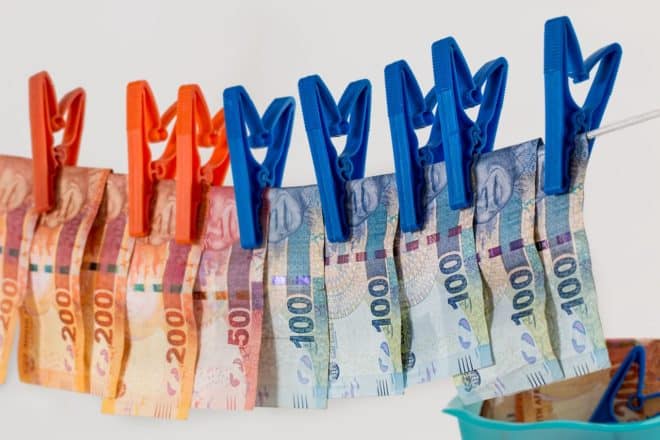Corporate compliance programs aim to make sure a company obeys laws and regulations. One problem with compliance — companies can sometimes make more breaking the rules than following them. And they are complicated. So, they mount compliance programs for show and look the other way. That’s where whistleblowers come in. Or go out. Some internal reporting programs work against whistleblowers, so insiders choose to report wrongdoing to a government agency or the press.
And when they do, companies are sometimes forced to assess the efficacy of their compliance programs. At Danske Bank, the cost of doing so may lead to layoffs. Bank employees are being offered buy-outs, with managers of the international bank citing rising compliance costs. From Bloomberg.
Danske Bank A/S is offering 2,000 of its employees in Denmark the option of stepping down as the cost of adapting to a world with stricter regulations and negative interest rates just keeps growing…
Danske has acknowledged its costs are still rising, following a vast Estonian dirty-money scandal. In an interview in Stockholm, the chief executive of Danske in Sweden, Johanna Norberg, said “the peak” level of investment to meet anti-money laundering requirements has “not yet been reached.”
The more than $200 billion Danske Bank money laundering scandal was exposed by whistleblower Howard Wilkinson. He reported suspicious transactions at bank’s Estonia branch, where he worked until 2014. Bloomberg reports that Danske is being investigated in Denmark, Estonia and France, as well as by the U.S. Department of Justice and the U.S. Securities and Exchange Commission. The bank was named 2018 “Corrupt Actor of the Year” by the Organized Crime and Corruption Reporting Project.”
South Korea
Last week, South Korea’s Samsung Group, facing bribery charges involving former president Park Geun-hye, announced it was appointing external experts to a new corruption oversight panel. From Reuters:
The move came after a judge overseeing Samsung leader Jay Y. Lee’s bribery case in October criticized the top conglomerate for its lack of an effective compliance system, saying one was needed to prevent wrongdoing by executives and its leader.
“The timing Samsung chose to make these changes is not that great… and if this committee fails, I will end up hugely disgraced,” said Kim Ji-hyung, a former supreme court judge named to head the compliance and oversight committee, told a news conference.
The story notes that others believe the move was designed to appease the courts. A Hanyang University professor said that there is no protection for internal whistleblowers in Korea.
“An effective compliance program could be operated within the environment, encouraging employees to internally report violation without fearing reprisal. But this is not the case at Korean companies,” said Lee Chang-min, a specialist in corporate governance at Seoul-based Hanyang University.
DOJ
In April, the U.S. Department of Justice issued guidance for companies on how the DOJ evaluates corporate compliance. Each case is difference, but companies should expect to be asked:
- Is the corporation’s compliance program well designed?
- Is the program being applied earnestly and in good faith? In other words, is the program being implemented effectively?
- Does the corporation’s compliance program work in practice?
The document notes that a “hallmark of a well-designed compliance program” is a secured mechanism for anonymous or confidential reporting
Prosecutors should assess whether the company’s complaint-handling process includes pro-active measures to create a workplace atmosphere without fear of retaliation, appropriate processes for the submission of complaints, and processes to protect whistleblower investigations of such complaints, including the routing of complaints to proper personnel, timely completion of thorough investigations, and appropriate follow-up and discipline
